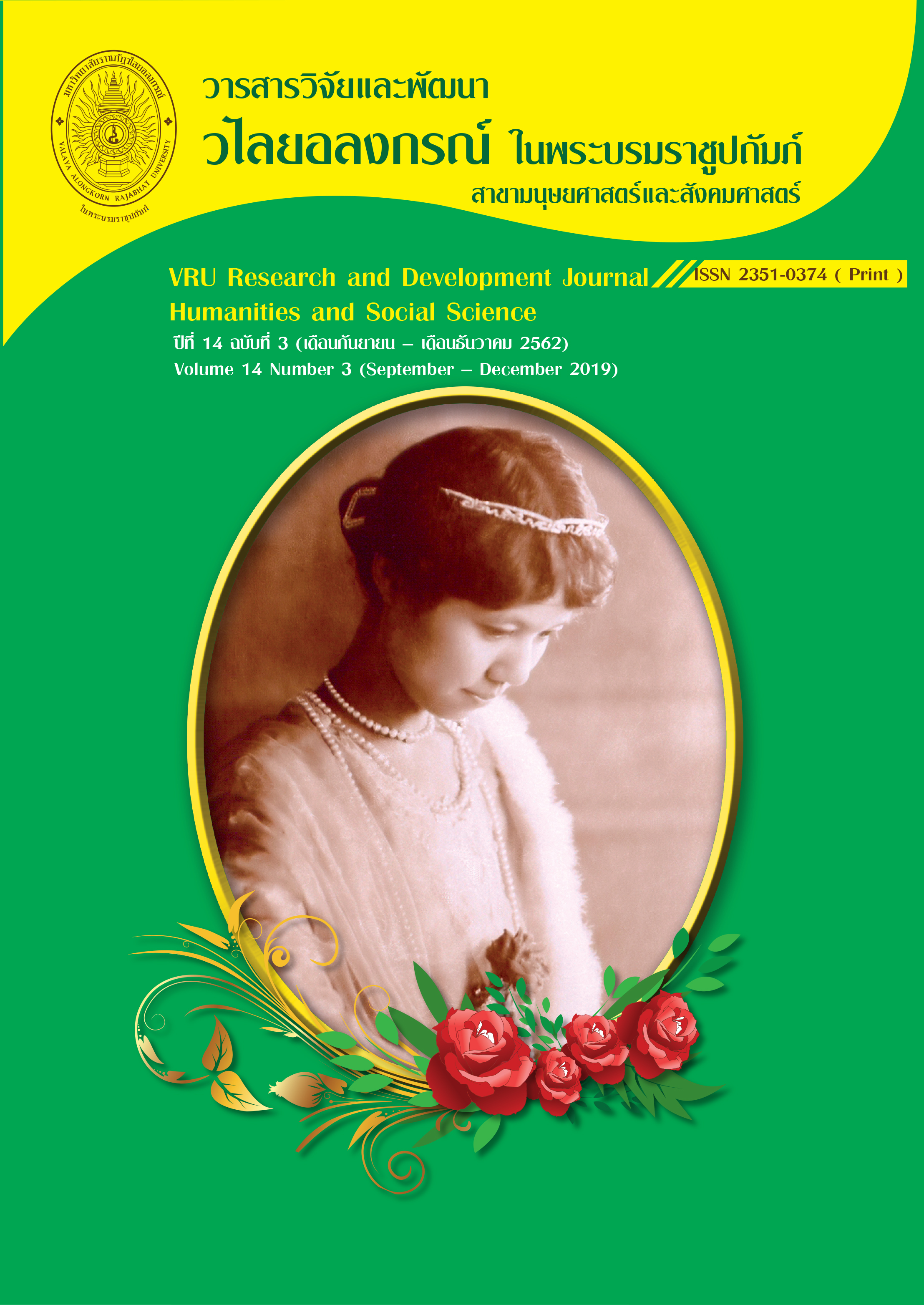THE USE OF GAMES INCORPORATING MANIPULATIVES IN TEACHING GEOMETRY TO GRADE SIX BHUTANESE STUDENTS
Main Article Content
Abstract
A mixed method research was conducted to: 1) examine the effect of using games incorporating manipulatives on learning achievement in geometry of grade six Bhutanese learners and 2) find out perception of grade six Bhutanese learners towards the use of games incorporating manipulatives in learning geometry. The data were collected through pretest and posttest (quantitative method), semi structured interview and classroom behavior observation (qualitative method) and analyzed using mean, standard deviation, Wilcoxon signed rank test and thematic analysis. A section was selected out of two sections (consisted of 28 learners in each section) of grade six as a research participant through the use of a clustered random sampling method. The sample group was taught using games incorporating manipulatives for a period of one month. The result of pretest and posttest displayed that the use of games incorporating manipulatives enhanced the learning achievement of grade six Bhutanese learners in geometry. The mean score 6.33 in pretest and the mean score 12.78 in posttest made the mean difference of 6.45 which showed significant improvement. The data analyzed from semi structured interview and classroom behavior observation confirmed that the learners had positive perception towards the use of games incorporating manipulatives in learning geometry. The learners enjoyed and were motivated in conducive learning environment created by the use of games incorporating manipulatives. Therefore, the analysis of all research data supported the implementation of games incorporating manipulatives in learning geometry for grade six Bhutanese learners.
Article Details
ลิขสิทธิ์บทความวิจัยที่ได้รับการตีพิมพ์เผยแพร่ในวารสารมนุษยศาสตร์และสังคมศาสตร์ วไลยอลงกรณ์ ในพระบรมราชูปถัมภ์ ถือเป็นกรรมสิทธิ์ของคณะมนุษยศาสตร์และสังคมศาสตร์ มหาวิทยาลัยราชภัฏวไลยอลงกรณ์ ในพระบรมราชูปถัมภ์ ห้ามนำข้อความทั้งหมดหรือบางส่วนไปพิมพ์ซ้ำ เว้นแต่จะได้รับอนุญาตจากมหาวิทยาลัยเป็นลายลักษณ์อักษร
ความรับผิดชอบ เนื้อหาต้นฉบับที่ปรากฏในวารสารมนุษยศาสตร์และสังคมศาสตร์ วไลยอลงกรณ์ ในพระบรมราชูปถัมภ์ เป็นความรับผิดชอบของผู้นิพนธ์บทความหรือผู้เขียนเอง ทั้งนี้ไม่รวมความผิดพลาดอันเกิดจากเทคนิคการพิมพ์


